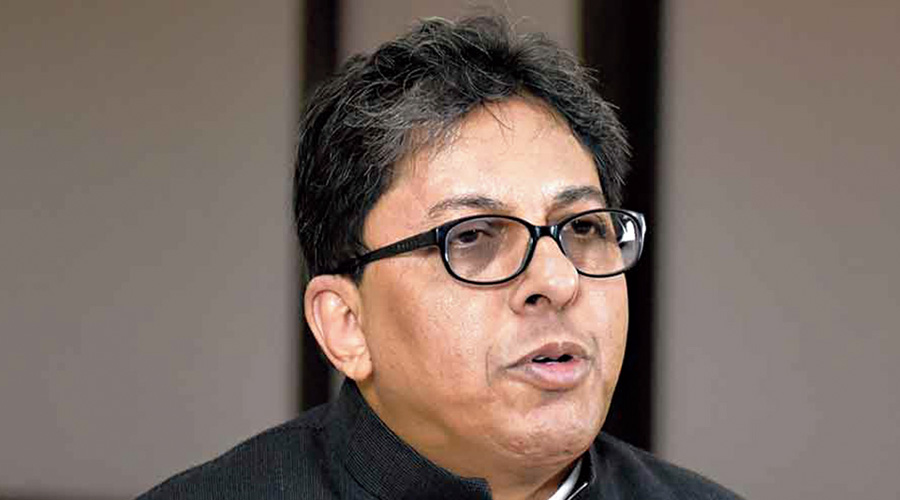The Centre on Monday took “serious exception” to certain observations made by the Calcutta High Court in its order passed on a plea filed by former West Bengal chief secretary Alapan Bandopadhyay, and told the Supreme Court that these are coloured with “some political overtones”.
The government told a bench of Justices AM Khanwilkar and CT Ravikumar that this matter relates to the service of one officer and these observations should have been avoided by the high court.
The top court reserved its order on the Centre's plea challenging the October 29 order of the high court which had set aside an order of the principal bench of the Central Administrative Tribunal (CAT) to transfer an application by Mr Bandopadhyay, challenging the proceedings initiated against him by the Centre, from Kolkata to New Delhi.
The Centre objected to certain observations made in the high court order, including the one which said the “entire modus operandi adopted by the Union of India reeks of mala fides” and, unfortunately, the principal bench of the CAT “nurtured such efforts by passing the impugned transfer order, thereby paying obeisance to the diktat of the Union of India, which has been repeatedly held by the Supreme Court and various High Courts not to be a favoured litigant.”
Solicitor General Tushar Mehta, appearing for the Centre, told the bench that “these are the observations coloured with some political overtone and should have been avoided,”
Mehta said there have been judgements by the top court that say that the high courts will have to be very circumspect in making observations.
He said personal views or political ideologies can never play any role in the exercise of the judicial function.
“This is a matter of service of one officer. The chairman (of CAT) has the power to transfer the proceedings from one bench to another, without touching the merits, and the high court says this disturbs the federal structure,” Mehta said, adding, “I am taking very serious exception”.
“I am posing a question to myself with all seriousness. Where the federal structure comes into the picture,” he said.
Referring to one of the observations made in the order, the solicitor general said, “I (Union of India) am an applicant. I am before the authority having the jurisdiction. I am arguing the matter, the other side is being heard. Is it my diktat if I move my application as a respectable litigant.”
Mehta also argued on the issue of territorial jurisdiction and said the Calcutta High Court could not have exercised its jurisdiction on a plea against the order passed by the principal bench of CAT which is in New Delhi.
Senior advocate AM Singhvi, appearing for Mr Bandopadhyay, said the IAS officer has always been a resident of Kolkata and every part of the cause of action in the matter is in West Bengal.
At the outset, Mr Mehta told the bench that he would not take longer to advance his submissions as he was aware that the bench might be required to get up a little early.
“Get up early. On what basis you are saying this Mr solicitor? What information do you have?” the bench asked.
“Your lordships are becoming a guest in my state (Gujarat),” Mehta said without elaborating further.
“We knew that you are resourceful but so much resourceful that our moment is also tracked by you,” the bench said in a lighter vein.
The solicitor general said that when the judges are visiting someplace, the protocol department inquires whether there are any specific requirements.
“It's more for your lordship's convenience and if needed, any further assistance. That's all. There is nothing. It's not tracking,” the solicitor general said.
On November 15, the Centre had told the top court that the high court has passed a “disturbing order” while setting aside the order of the principal bench of CAT.
The top court was hearing a plea filed by the Centre against the high court order, which had also directed the Kolkata bench of CAT to expedite the hearing of Bandopadhyay's application and dispose of it at the earliest.
Bandopadhyay had moved the Kolkata bench of CAT, challenging the proceedings initiated against him by the Ministry of Personnel and Public Grievance and Pensions in a matter relating to attending a meeting on May 28 at the Kalaikunda Air Force station that was chaired by Prime Minister Narendra Modi to discuss the effects of cyclone Yaas.
Mehta had told the top court on November 15 that Mr Bandopadhyay had challenged the initiation of departmental action against him by the Centre before the Calcutta Bench of CAT.
Referring to the high court order, the law officer had said some “very disturbing” remarks have been made against the principal bench of CAT.
“We can say that the disturbing remarks will be expunged,” the bench had observed.
Bandopadhyay, who was not released by the state government, chose to retire on May 31, his original date of superannuation before having been given an extension of three months from that date.
Proceedings were initiated against Mr Bandopadhyay by the Union government and an inquiry authority was appointed in this regard, which fixed a preliminary hearing on October 18 in New Delhi. He then moved the Kolkata bench of CAT, challenging the proceedings against him.
The Union government had filed a transfer petition before the principal bench of CAT, which on October 22 allowed the transfer of Bandopadhyay's application to itself in New Delhi.










